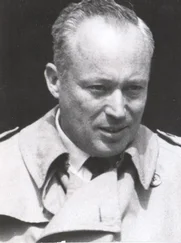Armageddon - Leon Uris
Здесь есть возможность читать онлайн «Armageddon - Leon Uris» весь текст электронной книги совершенно бесплатно (целиком полную версию без сокращений). В некоторых случаях можно слушать аудио, скачать через торрент в формате fb2 и присутствует краткое содержание. Жанр: Старинная литература, на английском языке. Описание произведения, (предисловие) а так же отзывы посетителей доступны на портале библиотеки ЛибКат.
- Название:Leon Uris
- Автор:
- Жанр:
- Год:неизвестен
- ISBN:нет данных
- Рейтинг книги:4 / 5. Голосов: 1
-
Избранное:Добавить в избранное
- Отзывы:
-
Ваша оценка:
- 80
- 1
- 2
- 3
- 4
- 5
Leon Uris: краткое содержание, описание и аннотация
Предлагаем к чтению аннотацию, описание, краткое содержание или предисловие (зависит от того, что написал сам автор книги «Leon Uris»). Если вы не нашли необходимую информацию о книге — напишите в комментариях, мы постараемся отыскать её.
Leon Uris — читать онлайн бесплатно полную книгу (весь текст) целиком
Ниже представлен текст книги, разбитый по страницам. Система сохранения места последней прочитанной страницы, позволяет с удобством читать онлайн бесплатно книгу «Leon Uris», без необходимости каждый раз заново искать на чём Вы остановились. Поставьте закладку, и сможете в любой момент перейти на страницу, на которой закончили чтение.
Интервал:
Закладка:
Ernestine had spoken about Frau Kirchner and the new generation of Germans with her uncle many times. Gerd, like most Germans, dropped the hostility of the defeat as well as their Nazi friends when it was no longer profitable. His attitude, arrogance, and ambitions had not changed. The only change was the way of doing business. Gerd was clever, she thought, and his kind will be able to convince people, particularly the Americans, about the “new” Germany.
“You will come?” he asked again.
“It is a matter I must discuss with Uncle Ulrich.”
“By all means. I hope you decide favorably. I trust Uncle Ulrich will honor us with a visit,” he added carefully, “and I should like you to meet my fiancée.”
She spoke to her uncle about Gerd’s visit later in his study where they had whiled away many hours just talking together.
“It is not like Father to either forgive or forget anyone whom he feels has wronged him,” Ernestine said.
Ulrich nodded.
“From the time you were sent to the concentration camp until you returned to Berlin your name was forbidden as was Uncle Wolfgang’s.”
“Time,” Ulrich said, “time softens us all up. It bleeds the will power that is needed to sustain a long feud.”
“But do you really believe this comes from his heart?”
“I think,” Ulrich said, “the ring is closing.”
“Don’t be a mystic, Uncle.”
“But mystics we must be. Men such as Bruno are common in our people. They are certain their life is guided by a mysterious fate and not by themselves. Unavoidable ‘fate’ is a built-in excuse for failure. One, like your father, who sees himself as a victim of fate is apt to be superstitious, unclear of mind. Bruno cannot admit to himself his life was a lie. He has wrapped himself in ‘fate’ to avoid both guilt and shame of the Nazi era. But ... every man and woman who lived in Nazi Germany in our generations must, in the end, seek an acquittal from God.”
“Once I had a letter from that boy in the SS,” Erna said. “It was his last, from Stalingrad. He wrote me that now that he was facing his Maker he was frightened because of the things he had done.”
“Yes. And it is the same with Bruno. It will be the same with sixty million Germans. They will come to that place far up the road where they can no longer avoid the questions.”
“But what does Father seek from us?”
“An avenue of redemption, a proof of his innocence. Some Germans will stand at the Lord’s throne and say, see here, God, I had a Jewish friend. I did not like what happened to him. Bruno Falkenstein builds a case. He will say, God, my brother was in a concentration camp and he has returned to our family. My daughter has left my roof, but I am so great and generous I have forgiven her. Am I not worthy?”
“What should we do, Uncle?”
“He is your father ... my brother ... our burden, our cross.”
Bruno advanced toward his daughter, took her hand, patted it. “It was good of you to come, Erna,” he said, his voice choking with emotion.
“Froeliche Weinachten, Vater,” she whispered.
Herta ran from the room in order not to show tears.
“Sit, sit,” her father said.
His old pinstripe suit was worn out, but there was still a trace of grandness in it. It hung on him poorly. Even by candlelight she was struck by how he had aged. It was this that gave her a sudden knowledge that a parent was slipping away.
They lived in the same rooms, but the rooms were warm while the others in the building were freezing. The candlesticks were silver. The windows were not covered with tin and boards, but by heavy drapes. The little alcove shared by Erna and Hilde was a tiny luxury of leather couch and desk for Gerd.
As they spoke of small things she realized that his age, his illness, had caused a loss of anger.
“I have learned that you are not well these days, Father.”
“The wear and tear of life. Fate has dealt us cruel blows.”
“Gerd told me it is not necessary for you to work any longer. How do your days pass?”
“I am growing old. I make my peace with God.” He rubbed the back of his hand nervously ... faltered. “How is Hilde’s health?”
“She is happy. She lives in Wiesbaden and works for an American family.”
“The Amis are not too bad. They have paid back much for how they ruined Berlin with their bombs.”
Gerd arrived with his fiancée, Renate Hessler. The girl was only nineteen years of age; Herta assured Erna she was from a “good” German family.
Renate was waxen-faced and moved with the forced gestures of a mannequin. Gerd had her lavishly decorated in a way that belied the hardships outside. Her speech was superficial. She could talk about almost nothing other than clothes.
Ernestine saw her as decorative ornament for Gerd to parade in public. Renate would be trained in the German manner to serve her man. The luxuries Gerd would be able to bring her was ransom enough to assure him he would be allowed innumerable mistresses.
After an exchange of drivel, Erna was tempted to ask Gerd if Renate was a member of the new Germany or the old.
“Ulrich will come?” her father asked for a third time.
“Yes, but Christmas is a bad time for the Oberburgermeister of Berlin. He has many orphanages and hospitals to call upon.”
“Yes, yes, I understand.”
The electricity in Steglitz Borough was turned on an hour early as a Christmas gift from the Americans. Herta scampered to the stove to prepare the meal.
At long last the car of the Oberburgermeister stopped before the building. A number of passing people stopped, surrounded him. They stood in the snow to shake the hand of Ulrich Falkenstein ... their new “father.”
Erna watched all this from the window above and looked at Gerd and her mother and Renate, and wondered if anything had really changed at all.
As Ulrich disappeared into the building, Erna watched the excitement rise in her father. He stood, adjusted his dress, a shadow of the old pomp, shoulders back, erect.
Gerd welcomed his uncle at the door with a proper bow, then the brothers stood face to face. Ulrich opened his arms and Bruno came to him and they embraced.
“Froeliche Weinachten, Bruno.”
For the first time in her memory, Erna saw her father cry.
Chapter Thirty-six
HILDEGAARD THOUGHT THAT IT was cruel of the Americans to order Colonel Loveless away on Christmas Eve. Clint came home in the afternoon and informed the family that he had to go to the Erding Base. There was a foul-up on the small-parts assembly lines.
Hilde rushed the dinner of goose. It was eaten half-heartedly, the opening of gifts around the tree became confused and miserable. Clint pulled out when the staff car came.
On Christmas Day he phoned from Erding. Judy cried and Lynn cried because Daddy was alone. The children and Hilde all insisted Mommy go down to Erding and stay with him. Clint was miserable but protested the idea ... weakly.
When everyone reassured her they wanted her to make the trip, she packed her bags in minutes. Clint meanwhile drove to Munich to find a hotel room.
When Hilde and the children saw Judy off at the railroad station it became a good Christmas for everyone.
Erna’s letter came the next day. When the children had been put to sleep, she stoked the fire and read it over for a third time.
Erna was a saint. Hilde knew she would never have gone back to her father, first. Hilde did not hate him so strongly as she once believed. These days hate was tempered by pity and the wisdom of maturity. Time healed so many things. Perhaps it could heal this too. Perhaps she would see her family again.
She wrote to Erna that the silly business with the flyer was over. Having lost her heart for the first time, it was proving difficult. She reaffirmed her contention that love was a bother and could bring nothing but pain.
Читать дальшеИнтервал:
Закладка:
Похожие книги на «Leon Uris»
Представляем Вашему вниманию похожие книги на «Leon Uris» списком для выбора. Мы отобрали схожую по названию и смыслу литературу в надежде предоставить читателям больше вариантов отыскать новые, интересные, ещё непрочитанные произведения.
Обсуждение, отзывы о книге «Leon Uris» и просто собственные мнения читателей. Оставьте ваши комментарии, напишите, что Вы думаете о произведении, его смысле или главных героях. Укажите что конкретно понравилось, а что нет, и почему Вы так считаете.











